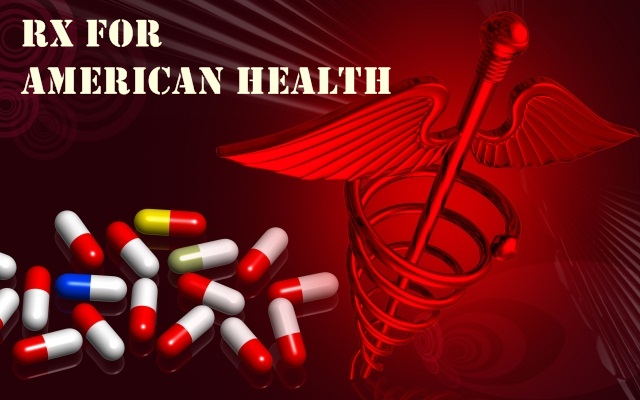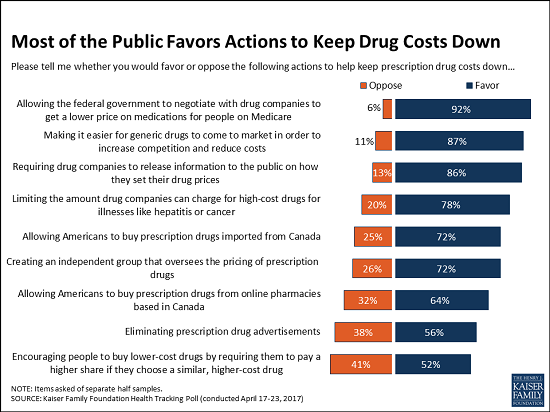ST. LOUIS, MISSOURI, USA, September 29, 2016 /EINPresswire.com/ --
The publisher of TodaysSeniorsNetwork, which includes RxforAmericanHealth and
the AmericanRxBillofRights, has lauded the members of the House of
Representatives Oversight Committee for its vigorous questioning of both Mylan
Chief Executive Officer Heather Bresch and Dr. Douglas Throckmorton, Deputy
Center Director for Regulatory Programs of the Food and Drug Administration, in
recent hearings about the continuing EpiPen price scandal, but says Congress
must ask itself about its failure to end Pharma pricing abuses.
“It is gratifying to see bi-partisan consensus on the dramatic, undesirable consequences affecting the health and well-being of American citizens because of the predatory pricing practices of Pharma,” Daniel Hines said in a letter to Committee members.
“Hopefully the expressions of outrage and indignation by the members are a prelude to Congressional action to end Pharma’s charging not just what the traffic will bear but what it determines to be necessary to inflated profits despite the harmful consequences to patients that simply cannot afford their medicines.”
But, Hines notes, there are questions that remain unanswered, and must be directed to not Pharma but to Congress.
“The questions should be asked by voters across the country as Congress prepares to recess before the elections,” he says. "It's in the voters' hands."
The questions include, When will Congress act? What will it take to make it act? Why has it not acted before, choosing instead to hold what seem to be endless ‘investigations? How does the FDA ignore previous Congressional Direction? What penalties are there other than fines for Pharma’s errant actions and misleading Congress? What is the harmful effect of unaffordable maintenance medicines that are a vital lifeline to patient? Why has Congress not implemented allowed personal importation of brand-name medicines from Tier One Countries to ensure that Americans have access to such a vital life-line?
In his letter to Committee members, Hines asked the following questions:
1. Throughout the hearing, Committee members noted that ‘they had been here before’, charges were leveled against Ms. Bresch’s statements calling them ‘rope-a-dope,’ ‘a shell game,’ and suggesting that perhaps this will be the impetus that will finally lead to Congressional action. But, If this latest example of Pharma abuse does not lead to Congressional action, what will it take? When will Congress act? Why is there a delay?
2. The testimony of Dr. Throckmorton, M.D., and his non-responsive answers to requests from the Committee, were appalling. His refusal to share information with the Chair of the Committee was particularly troublesome, and is indicative of the FDA, an agency ostensibly designed to protect the health and well-being of Americans, claiming equal status with Congress. Another example of such a blatant rejection of Congressional oversight is its refusal to implement ‘march in’ rights for more than 35 years, even in light of a recent bi-partisan Congressional request from 51 members of Congress. ‘Why does Congress allow the FDA to act in such an authoritative manner, refusing to acknowledge Congressional oversight?’ Also, why did the FDA reportedly deny the application of Teva for a competitive product to EpiPen on the basis of patent exclusivity of the design of the Mylan product?
3. The Wall Street Journal and others report that Ms. Bresch “underreported” Mylan profits by 60 percent, manipulating tax payment claims that, according to the WSJ did not apply to Mylan. Senators Amy Klobuchar (D-MN), Chuck Grassley (R-IA) and Richard Blumenthal (D-CT) have asked the Department of Justice to investigate whether Mylan has committed fraud. Will this claim be investigated further by Congress or DOJ? If the charge is found to be true, what will be the result?
4. There was a consensus on the Committee that a medicine that is unaffordable is, in and of itself, unavailable. You can’t buy what you can’t afford. But, millions of Americans have for years been denied the health benefits of access to a regimen of their prescribed medicines. It is virtually impossible to estimate the adverse impact to the health of individuals and society that have occurred simply because they can’t afford their medicines, due to Pharma and the FDA ignoring previously adopted directives to the FDA and HHS to explore and facilitate what is a readily available, affordable and safe resolution to the fact that Americans pay the highest prescription prices in the world—i.e., the personal importation of safe, affordable brand-name prescription medicines from licensed, registered pharmacies in Tier One Countries whose standards of safety and efficacy meet or exceed those of the U.S.
5. Congress has introduced legislation that would allow personal importation many times over the past 15 years. Millions of Americans have personally imported their medicines for years despite by FDA and Pharma opposition. Both current Presidential candidates support some form of personal importation of prescriptions from Canada and Tier One Countries as a means to lower prescription costs. There are bi-partisan bills for personal importation that have been introduced in the current Congress. But the FDA claims it cannot verify the safety and efficacy of drugs produced outside this country and that are personally imported , although it works with Pharma to provide oversight of the more that 80 percent of the prescription ingredients that are produced outside the U.S., and has stated that it is seeking greater cooperation with counterpart oversight agencies outside the U.S. Added to this is that while millions of Americans have been denied access to affordable medicine because of Pharma pricing practices, millions more have turned to personal importation of safe, affordable medicines for years, leading to the question, why does Congress fail to enact enabling legislation for personal importation?
Hines concludes, “One can only hope that the Mylan hearings will lead to a consensus-building initiative that will result in comprehensive legislation as outlined in the American Rx Bill of Rights and finally ending the ‘be damned’ attitude of Pharma.
“It is gratifying to see bi-partisan consensus on the dramatic, undesirable consequences affecting the health and well-being of American citizens because of the predatory pricing practices of Pharma,” Daniel Hines said in a letter to Committee members.
“Hopefully the expressions of outrage and indignation by the members are a prelude to Congressional action to end Pharma’s charging not just what the traffic will bear but what it determines to be necessary to inflated profits despite the harmful consequences to patients that simply cannot afford their medicines.”
But, Hines notes, there are questions that remain unanswered, and must be directed to not Pharma but to Congress.
“The questions should be asked by voters across the country as Congress prepares to recess before the elections,” he says. "It's in the voters' hands."
The questions include, When will Congress act? What will it take to make it act? Why has it not acted before, choosing instead to hold what seem to be endless ‘investigations? How does the FDA ignore previous Congressional Direction? What penalties are there other than fines for Pharma’s errant actions and misleading Congress? What is the harmful effect of unaffordable maintenance medicines that are a vital lifeline to patient? Why has Congress not implemented allowed personal importation of brand-name medicines from Tier One Countries to ensure that Americans have access to such a vital life-line?
In his letter to Committee members, Hines asked the following questions:
1. Throughout the hearing, Committee members noted that ‘they had been here before’, charges were leveled against Ms. Bresch’s statements calling them ‘rope-a-dope,’ ‘a shell game,’ and suggesting that perhaps this will be the impetus that will finally lead to Congressional action. But, If this latest example of Pharma abuse does not lead to Congressional action, what will it take? When will Congress act? Why is there a delay?
2. The testimony of Dr. Throckmorton, M.D., and his non-responsive answers to requests from the Committee, were appalling. His refusal to share information with the Chair of the Committee was particularly troublesome, and is indicative of the FDA, an agency ostensibly designed to protect the health and well-being of Americans, claiming equal status with Congress. Another example of such a blatant rejection of Congressional oversight is its refusal to implement ‘march in’ rights for more than 35 years, even in light of a recent bi-partisan Congressional request from 51 members of Congress. ‘Why does Congress allow the FDA to act in such an authoritative manner, refusing to acknowledge Congressional oversight?’ Also, why did the FDA reportedly deny the application of Teva for a competitive product to EpiPen on the basis of patent exclusivity of the design of the Mylan product?
3. The Wall Street Journal and others report that Ms. Bresch “underreported” Mylan profits by 60 percent, manipulating tax payment claims that, according to the WSJ did not apply to Mylan. Senators Amy Klobuchar (D-MN), Chuck Grassley (R-IA) and Richard Blumenthal (D-CT) have asked the Department of Justice to investigate whether Mylan has committed fraud. Will this claim be investigated further by Congress or DOJ? If the charge is found to be true, what will be the result?
4. There was a consensus on the Committee that a medicine that is unaffordable is, in and of itself, unavailable. You can’t buy what you can’t afford. But, millions of Americans have for years been denied the health benefits of access to a regimen of their prescribed medicines. It is virtually impossible to estimate the adverse impact to the health of individuals and society that have occurred simply because they can’t afford their medicines, due to Pharma and the FDA ignoring previously adopted directives to the FDA and HHS to explore and facilitate what is a readily available, affordable and safe resolution to the fact that Americans pay the highest prescription prices in the world—i.e., the personal importation of safe, affordable brand-name prescription medicines from licensed, registered pharmacies in Tier One Countries whose standards of safety and efficacy meet or exceed those of the U.S.
5. Congress has introduced legislation that would allow personal importation many times over the past 15 years. Millions of Americans have personally imported their medicines for years despite by FDA and Pharma opposition. Both current Presidential candidates support some form of personal importation of prescriptions from Canada and Tier One Countries as a means to lower prescription costs. There are bi-partisan bills for personal importation that have been introduced in the current Congress. But the FDA claims it cannot verify the safety and efficacy of drugs produced outside this country and that are personally imported , although it works with Pharma to provide oversight of the more that 80 percent of the prescription ingredients that are produced outside the U.S., and has stated that it is seeking greater cooperation with counterpart oversight agencies outside the U.S. Added to this is that while millions of Americans have been denied access to affordable medicine because of Pharma pricing practices, millions more have turned to personal importation of safe, affordable medicines for years, leading to the question, why does Congress fail to enact enabling legislation for personal importation?
Hines concludes, “One can only hope that the Mylan hearings will lead to a consensus-building initiative that will result in comprehensive legislation as outlined in the American Rx Bill of Rights and finally ending the ‘be damned’ attitude of Pharma.










